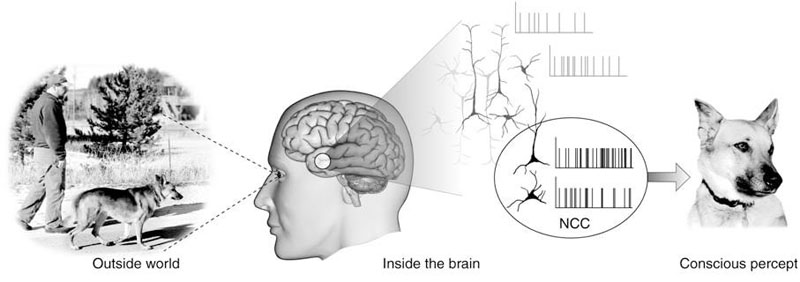Consciousness
- Consciousness is the state of awareness, or, of being aware of an external object or something within oneself. It has been defined as: sentience, awareness, subjectivity, the ability to experience or to feel, wakefulness, having a sense of selfhood, and the executive control system of the mind.
- Alertness is the state of active attention by high sensory awareness such as being watchful and prompt to meet danger or emergency, or being quick to perceive and act.
- The reticular formation is a set of interconnected nuclei located throughout the brainstem. It is not anatomically well defined. Its neurons play a crucial role in maintaining behavioral arousal and consciousness through modulatory and premotor functions.
- A sensorium is the sum of an organism's perception, the 'seat of sensation' where it experiences and interprets the environments within which it lives.
- Attention is the behavioral and cognitive process of selectively concentrating on a discrete aspect of information, whether deemed subjective or objective, while ignoring other perceivable information.
- Attentional control refers to an individual's capacity to choose what they pay attention to and what they ignore. It is also known as endogenous attention or executive attention.

A major part of the scientific literature on consciousness consists of studies that examine the relationship between the experiences reported by subjects and the activity that simultaneously takes place in their brains—that is, studies of the neural correlates of consciousness.